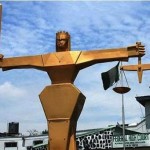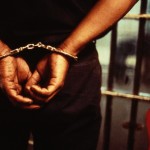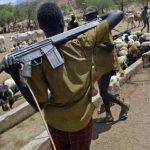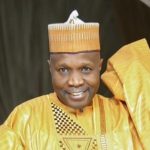Col. Sambo Dasuki’s Dangerous Call, By Adewale Kupoluyi
Articles/Opinion, Featured Contributors/Columnists, Latest Headlines Saturday, January 24th, 2015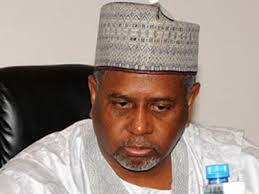
The call for the postponement of next month’s general elections became louder with the latest comments made by the National Security Adviser, Col. Sambo Dasuki (retd.), that the Independent National Electoral Commission (INEC) should postpone the forthcoming general elections so that the commission can completely distribute the Permanent Voters’ Card to prospective voters. Dasuki gave this advice while speaking at London think-tank Chatham House, reasoning that a postponement within the next three months, as allowed by the law, would ensure that all issues bordering on the distribution of the PVCs as well as fears that elections may not hold in some part of North eastern Nigeria would have been resolved.
While the statement by Dasuki may appear personal, the fact that it came from a very top official in The Presidency should elicit serious attention especially now that the presidential election is less than one month away. Already, the opposition party, the All Progressives Congress; Conference of Nigerian Political Parties (CNPP); Arewa Consultative Forum; Nigeria Civil Society Situation Room, a coalition of civil society organisations; Jama’atu Nasril Islam; Afenifere Renewal Group; Borno Elders’ Forum; and a former vice-president, Atiku Abubakar, have warned against postponing the elections. The APC said “under no circumstance must the elections be scuttled”. The National Publicity Secretary of APC, Alhaji Lai Mohammed, in the statement alleged that Dasuki’s position had “exposed the hitherto clandestine plot by the Goodluck Jonathan’s administration to push for the postponement of the polls, using all sorts of cheap tricks. Now that we have found the smoking gun, we are urging the international community, in particular, to urgently extract a commitment from President Goodluck Jonathan that the elections will hold as scheduled next month, and that he would respect the outcome, just as we have said”. Before Dasuki’s call, the Christian Association of Nigeria; the Ijaw Youth Council Worldwide; the Federation of Middle Belt People; the Ohanaeze Ndigbo; Peoples Democratic Party (PDP) chieftain, Chief Olabode George; the founding pastor of the Latter Rain Assembly and a former vice presidential candidate of the defunct Congress for Progressive Change (CPC), Tunde Bakare; and a non-governmental organisation, Centre for Social Justice, among others, had also called on INEC to postpone the elections if necessary to ensure the polls’ credibility and acceptability.
While the constitution allows for the freedom of expression, the timing of Dasuki’s advice is certainly wrong and suspicious. With the call, many people are of the opinion that it was a deliberate attempt by the Federal Government to prevent the elections from holding because of its perceived declining popularity and soaring sympathy for the opposition party. The chairman of INEC, Professor Attahiru Jega, has given the assurance that the commission was ready to go ahead with the elections as planned, while assuring that the remaining PVCs would still be issued up till February 13. However, not a few Nigerians have expressed their reservations with the way INEC has so far carried out its assignment most especially, in the handling of the PVC distribution, which seems to have disenfranchised many Nigerians. For the avoidance of doubt, possession of PVCs is a strict condition for anyone intending to vote in the elections. According to INEC, even though a total number of 68,833,476 voters had registered for the polls, only 38,774,391 had collected their PVCs, out of the 54,341,610 that are ready. He added that the commission had directed all resident electoral commissioners to further decentralise the distribution of the cards to the ward level.
INEC should ensure that nothing stops it from conducting the polls creditably. Anything short of this could trigger social unrest in the country. Nigerians want the elections to hold irrespective of any obstacle. Elections should be the legitimate platform for the people to elect leaders that will better their individual lives and the lot of the society. It will be a great disservice to the people if the government fails to make peaceful election exercise impossible. Alternatively, to avoid preventing eligible voters from carrying out their civic obligation, INEC should allow those who have yet to collect their PVCs to use the temporary cards to vote after which they can collect the PVCs whenever they are ready in line with the recent resolution passed by the House of Representatives. Shifting the election, as recommended by Dasuki could set the nation on fire because it would be seen as an avenue to seek tenure elongation by the Federal Government, through the back door.
Honestly speaking, there is nothing on ground that should suggest the postponement of the elections. Section 135 (3) of the 1999 Constitution, as amended, only provides for postponement ‘if the federation is at war in which the territory of Nigeria is physically involved and the President considers that it is not practicable to hold elections, the National Assembly may by resolution, extend the period of four years mentioned in sub-section (2) of this section from time to time; but no such extension shall exceed a period of six months at any one time’.
We recall that a similar and dangerous call for election postponement was made in the past by the notorious group, the Association for Better Nigeria (ABN), which was formed after the Ibrahim Babangida regime abolished all political parties and created the two national parties in 1991; the National Republican Convention (NRC) and the Social Democratic Party (SDP). Agence France Presse (AFP) reported that the ABN was formed in June 1993 while the Defense and Foreign Affairs’ Strategic Policy claimed that the ABN has 25 million members. Inter Press Services (IPS), in a report dated April 19, 1993, noted that the ABN held its first official meeting in Lagos and named one Jerry Okoro as its national coordinator. The primary aim of the ABN was to keep Ibrahim Babangida in power. This, the ABN pursued vigorously with the erection of billboards in Abuja that carried the message “Four More Years. The leadership of ABN, a “one-man show”, was headed by Chief Arthur Nzeribe. In its further desperation to endorse the extension of military rule, the ABN went to court to prevent the holding of the 1993 presidential election on a flimsy allegation that the leaders of the NRC and SDP were corrupt. Not satisfied, the ABN eventually went to court but lost the case. And when the election was held, the ABN again went to court to prevent the release of the results. At the end of the day, the June 12, 1993 election, widely described as the freest and fairest in the annals of the country was eventually annulled. And since then, the nation has never remained the same.
On a final note, my advice for the NSA is that he should focus more on security by engaging in strategic unilateral and multilateral relations, foster closer cooperation with foreign intelligence services to broaden the capacity of the police, intelligence and internal security to tackle terrorism as well as protect lives and property. The NSA should realise that no meaningful development can ever take place in an unsafe environment like ours where violence, sectarian crises and other forms of criminality have become the order of the day. But I am afraid, time may not be on his side again!
Kupoluyi writes from Federal University of Agriculture, Abeokuta (FUNAAB), adewalekupoluyi@yahoo.co.uk, Twitter, @AdewaleKupoluyi
Related Posts
Short URL: https://www.africanexaminer.com/?p=21889


